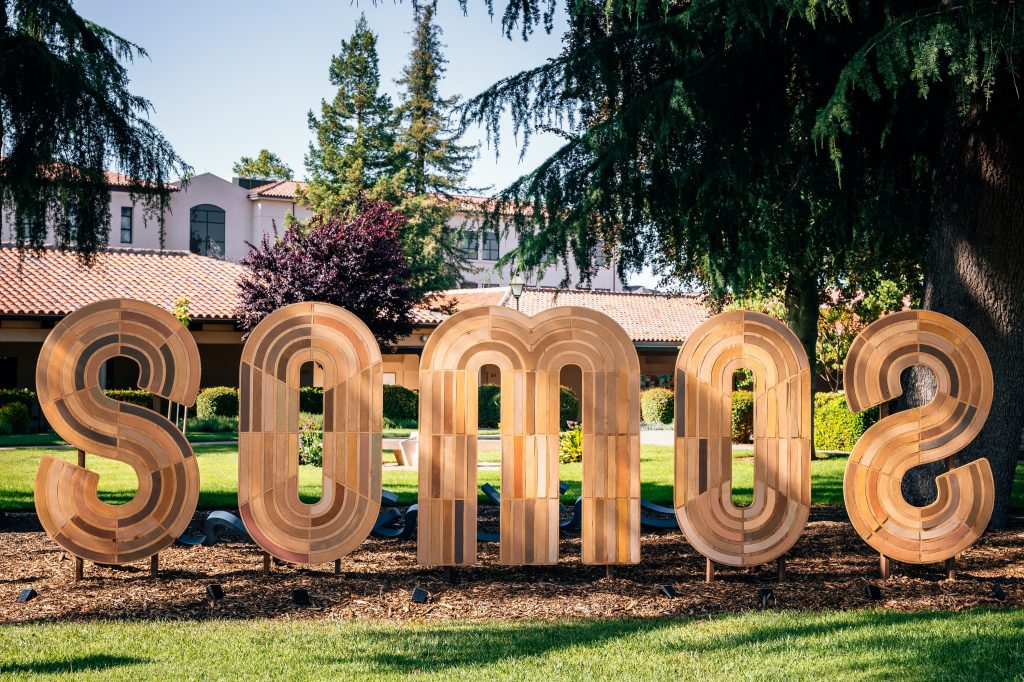In late May, Santa Clara University (SCU) celebrated its newest outdoor public art installation. With each letter standing 6 feet in height and the entire word spreading out to 25 feet in length, the sculpture reading “SOMOꙄ” refers to the Spanish phrase, “we are.” This art installation is located near the de Saisset Museum.
“For the past three years, the Montalvo Arts Center and SCU have a visiting artist made possible by a donor,” said Takeshi Moro, SCU’s Associate Professor and Department Chair of the Art and Art History Department. “Ana Teresa Fernandez is part of the Lucas Artists Residency Program at the Montalvo Arts Center. During her residency from April through May, she created ‘SOMOꙄ.’”
“SCU is a Jesuit University; we encourage students to actively engage in issues of social justice and sustainability,” said Lisa Robinson, SCU’s Associate Director of Communications. “This year, we’ve seen students, faculty and staff address issues and challenges by encouraging open dialogue, active listening and compassion.
“Ana Teresa’s vision for the sculpture is beautiful,” Robinson continued. “The ‘SOMOꙄ’ sculpture is a mirror of who we are as a community. It draws together each of our unique identities to create a beautiful whole. Each tile, and each person who painted it, is essential to the sculpture and the SCU community.”
What distinguishes “SOMOꙄ” from other works of public art at SCU is that visitors and members of the school community were able to contribute to the sculpture by painting colors to mimic their skin tone on the wooden tiles.
“‘SOMOꙄ’ was made with the purpose of archiving the student body’s diversity through this creative experience,” said Artist Ana Teresa Fernandez. “About 10 students from the Art Department and myself brought into the public areas of the campus the opportunity for the students to create their skin tone on these wooden tiles.”
According to Fernandez, a native of Mexico, students quickly learned how to blend paints under the concept that all their skin tones, whether dark or light, can be mixed from the five primary colors- red, blue, yellow, green and white.
“And from there, they were the ones to instruct the several hundred students, teachers, workers and visitors that participated,” Fernandez said. “We used exterior house paint so the colors do not lose their hue exposed to the weather over time.”
Fernandez recalled the enthusiasm students expressed for the work they produced for the sculpture. She credited the SCU community for assisting her through the process of creating “SOMOꙄ.”
“The students who worked closely with me over two months at school took the lead and were the ones instructing the other students how to blend their skin tone and explaining where the tiles would end up,” she said.
When asked what advice she had for artists who experience challenges while creating their art, Fernandez encouraged the artists to let their passions guide them.
“My advice is for students to be honest with themselves about what they care for,” Fernandez said. “What drives you? And let that be what moves you to make work.”
“SOMOꙄ” is expected to be up for public viewing at SCU for most of the summer.
